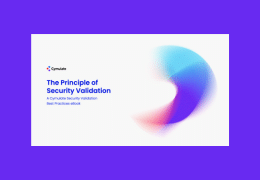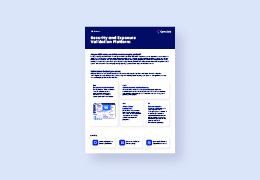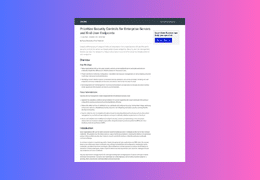Healthcare organizations are increasingly targeted by cybercriminals due to the sensitive nature of patient data. Data breaches in healthcare can lead to severe financial, operational, and reputational consequences, affecting millions of individuals. In response, the U.S. Department of Health and Human Services (HHS) and other regulatory bodies worldwide have implemented strict data privacy regulations to safeguard patient information. Despite these efforts, large-scale data breaches continue to occur, highlighting the need for proactive and robust cybersecurity measures within the healthcare sector.
The financial impact of healthcare data breaches
The financial consequences for a hacked healthcare organization are devastating, as the Anthem breach illustrates. Back in 2015, hackers gained access to the corporate database of health insurer Anthem Inc., getting away with an estimated 80 million data of current and former U.S. customers and employees. The health insurer agreed to pay $115 million to the victims pending approval from the federal court to settle the more than 100 lawsuits that had been filed against Anthem. It is unknown how much in HIPAA penalty fees Anthem had to pay to the HHS.
What is HIPAA compliance?
The Health Insurance Portability and Accountability Act (HIPAA) sets standards for protecting sensitive patient data. Signed into law in 1996, HIPAA requires healthcare organizations and their associates to comply with strict privacy, security, and breach notification rules.
HIPAA safeguard requirements
To comply with HIPAA, healthcare organizations must implement:
- Administrative Safeguards – Policies and procedures to manage administrative functions.
- Physical Safeguards – Protection of electronic systems and related equipment.
- Technical Safeguards – Measures to protect and control access to patient data.
International healthcare data protection standards
Outside of the US, Australia, Japan, the UK, and the EU are also working on legislation to protect civilians’ private and medical data. If we look at the EU, we see that it took a different approach than the US. Where HIPAA is industry-specific, the General Data Protection Regulation (GDPR), is designed to protect the privacy and personal data of all European Union residents. The GDPR impacts all organizations worldwide that collect personal information about EU residents. Non-compliance with GDPR has serious financial consequences. Approved in 2016, GDPR will come into effect on May 25, 2018.
What does this all mean for health organizations? Well, to become and remain compliant, they must perform risk analysis as part of their security management processes. The risk analysis process for determining which security measures they should implement includes the evaluation of the likelihood and impact of potential risks on their data and systems.
Remaining compliant is a main worry, and ongoing risk analysis will give organizations peace of mind. Regular review of the security of the organization’s data and systems will expose weak points that can be exploited for unauthorized access to data and for data leakage. Ongoing risk assessments will test the vulnerability of the organization’s systems and data for potential security incidents such as (spear) Phishing and ransomware attacks, as well as employees’ susceptibility to using social engineering exploits.
How Cymulate helps healthcare organizations stay HIPAA compliant
For healthcare organizations, especially those required to maintain HIPAA compliance, Cymulate provides a sophisticated, highly effective, and user-friendly Breach and Attack Simulation (BAS) platform. Healthcare teams can integrate Cymulate seamlessly into their network to conduct comprehensive assessments that simulate offensive and defensive cyber actions, exposing critical vulnerabilities. By mimicking multi-vector cyberattacks from an attacker’s perspective, Cymulate enables healthcare organizations to identify and address weaknesses proactively.

This proactive approach allows healthcare organizations to fortify their defenses against potential data breaches, protecting sensitive patient information and helping avoid costly fines and lawsuits. Cymulate’s BAS platform simplifies the testing process, making it easy to perform assessments on demand, as frequently as needed. For optimal security, Cymulate recommends monthly testing.
Would your healthcare organization be able to withstand a multi-vector attack? Would you like a clearer understanding of your security posture as required by HIPAA? See for yourself how Cymulate’s automated platform will simulate continuous attacks on different vectors to locate vulnerabilities which allows you to mitigate issues to remain HIPAA compliant:










